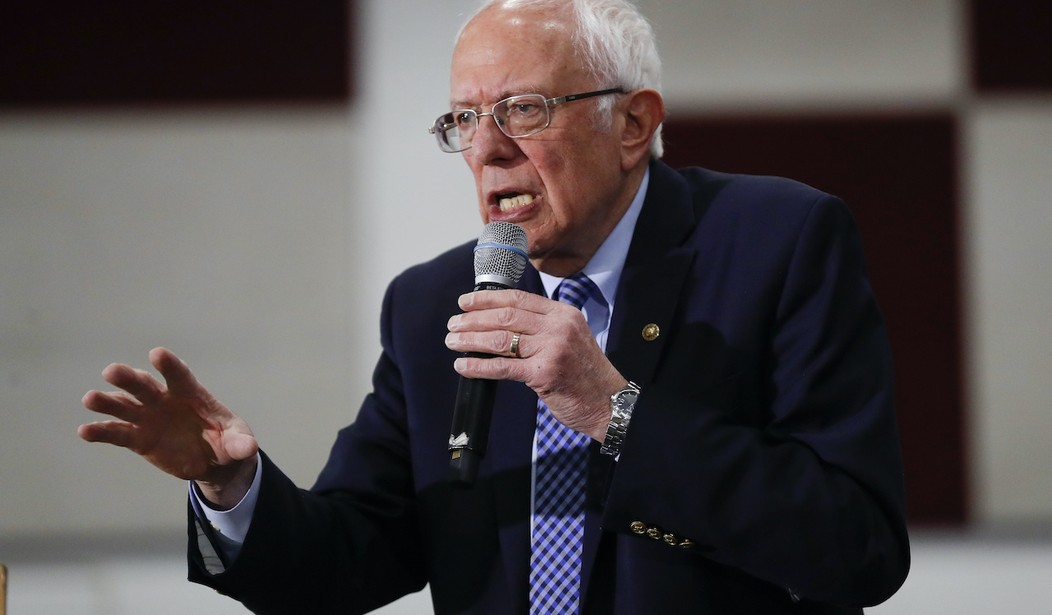Editor's note: This piece was authored by Caleb Ashley.
When Sen. Bernie Sanders dropped out of the 2016 Democratic presidential primary after an ultimately futile assault against the Democrat establishment, no one could’ve imagined he’d be a loyal foot soldier focused on party loyalty six years later. Right now, Sanders is leading negotiations with other Democrats to ensure his climate and health care priorities remain in the Democrat’s $1.75 trillion dollar spending bill, but there’s little doubt Sanders will ultimately support the bill.
This isn't not how it used to be. But Sanders' transformation from outsider to enforcer of Democrat purity speaks to deeper shifts in the party. The Democratic party is careening leftward toward more expansive spending policies, strengthening the role of government to capture functions that had previously been left to local governments and We the People.
For decades, Sanders ran against Democrat candidates claiming they were the "liberal elite." He won the mayor’s seat in Burlington by beating a Democrat incumbent and focused on challenging the establishment Democrat and Republican alike. Sanders wore his outsider status as a badge, even writing a book titled "Outsider in the House." His colleagues in Congress knew that he had big ideas, but saw him as a legislative lightweight.
After 2016, Sanders gained stature amongst Democrats, and this year he became Chairman of the Senate Budget Committee, one of the Senate's most coveted and powerful roles. During negotiations over President Biden's spending bill, Sanders has taken on an outsized role because the Budget Committee gets to weave together the various proposals into one bill. After years of being shunned from Democrats’ inner circles, Sanders has shaped the centerpiece of Biden's domestic agenda.
Recommended
That’s why it is no surprise that the bill contains policy after policy that looks like it was pulled from Sanders’s wishlist. The bill would reinstitute green energy tax credits while providing $320 billion in subsidies for electric vehicles. Instead of encouraging innovative green policies, the bill rehashes the same old failed policies and would serve to help the wealthy and affluent who already invest in such luxuries as electric cars.
Another massive spending item is $400 billion worth of funding to enact universal pre-k and a large child care subsidy. Providers would have to jump through government-imposed hoops that would likely make providing care more, not less difficult. New Jersey, which the Biden administration used as a model, is currently struggling to address corruption issues. Past research also indicates that private providers are often driven out of business, leaving parents with fewer options.
Sanders and his allies aren’t even being honest about the bill’s price tag. Instead of fully funding the programs for the next decade, programs including the universal pre-k are only funded for six years. An honest accounting of how much this package will cost over the next decade is somewhere north of $4 trillion. The self-proclaimed outsider is using classic D.C. tricks to deceive the American people about how much he wants to spend.
Sanders is using his influence to exert pressure on Democratic senators skeptical of Biden's spending bill. He recently said, "They have a right to fight for their ideas, they have a right to get concessions for their ideas, as does every other member of the caucus, but it does seem to me to be basically unfair and undemocratic for two people to say it's my way or the highway." He has expressed similar views in tweets and other interviews. This rhetoric isn’t persuading moderates to change their minds, but it is firing up progressives.
Sanders' arguments for why Manchin and Sinema should support the legislation often boil down to the fact that other Democrats do. And this appeal to party loyalty is a jarring change for someone who spent his political career rejecting party labels. The lifelong outsider now argues that the will of the Democrat party is what matters.
That’s a problem, because that means he agrees with it.
Policies that the party's leaders rejected because they were too far to the Left of what the American public believed are becoming Democrat priorities. Large chunks of the party now embrace Medicare-for-All and Sanders' government-heavy approach toward climate change.
Provision after provision in the social spending bill shows that Sanders has won the war. The bill would replace private businesses and innovation with top-down government programs that will cost hundreds of billions and reduce efficiency. After decades of fighting, Sanders is about to get large chunks of his socialist agenda passed into law—unless his own party stops him. It’s increasingly unlikely that it ever will again.
Caleb Ashley is a Young Voices contributor based in Alexandria, Virginia.

























Join the conversation as a VIP Member